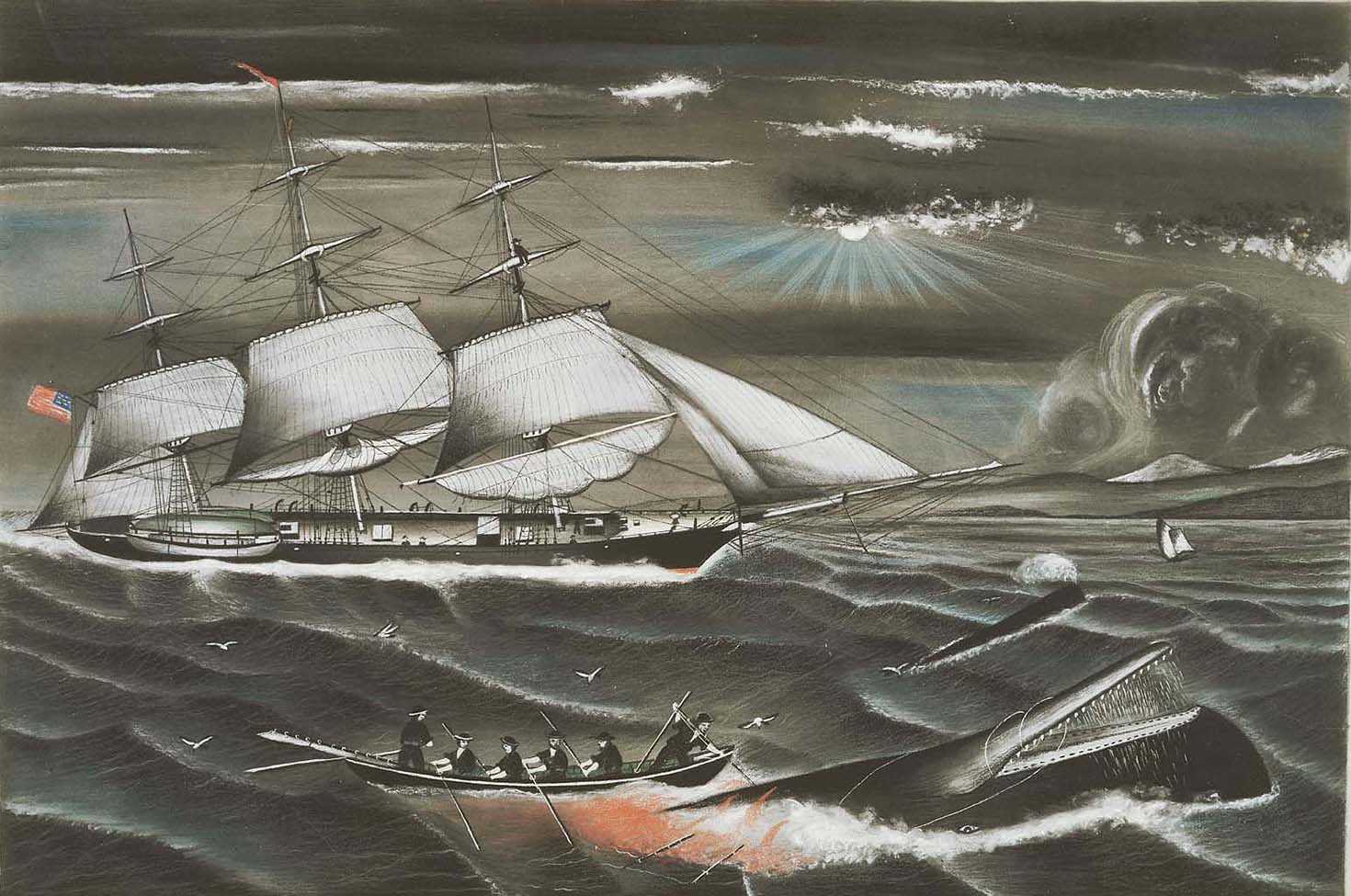
Whaling Off the Coast of California, by Coleman, c. 1859. Museum of Fine Arts, Boston, gift of Maxim Karolik.
• “Vaccines have been around since the late 1700s, and the rollouts have often been precarious—full of blunders, accidental deaths, dashed hopes, and dubious ethical decisions. When the very first vaccination campaign got under way, in fact, it faced such daunting barriers—technological, geographical, and medical—that today’s distribution challenges seem minor in comparison.” (TheAtlantic.com)
• Found: the world’s oldest known cave painting. (The Guardian)
• “Well, I guess the sight of people storming the Capitol and carrying Confederate flags with them makes it impossible not to think about American history. That was an unprecedented display. But in a larger sense, yes, the events we saw reminded me very much of the Reconstruction era and the overthrow of Reconstruction, which was often accompanied, or accomplished, I should say, by violent assaults on elected officials. There were incidents then where elected, biracial governments were overthrown by mobs, by coup d’états, by various forms of violent terrorism.” (NewYorker.com)
• On the Archives Hashtag Parties: “For those who find comfort in stockpiling answers to unasked questions, an invitation: Once a month, most months, there happens a happening that rewards compulsive curiosity. For a few hours in the backcountry of social media, miscellaneous facts surge and swirl and billow in unison, like clouds of starlings disappearing and reforming in an empty winter sky.” (New York Times)
• On the artistic practices of whalers. (The Public Domain Review)
• What was life like for a Neanderthal woman? (Aeon)
• “Romance in Marseille has been described by various reviewers as a book ‘ahead of its time,’ presumably because of its queer and disabled characters, and its frank discussion of racial violence and unfettered capitalism—themes more familiar to readers in 2020 than 1920. But I struggle to see an analogue in today’s fiction.” (Bookforum)
• “In a region of eastern Africa known as the Cradle of Humankind, archaeologists have unearthed an ancient site that they say points to early humans’ ability to adapt to sudden environmental shifts and longer-term climate change.” (Courthouse News Service)
• “To survive, the legend of American exceptionalism needed its imagined inverse, whether in Indian territory or across the border with Mexico. Over the weekend I asked Yale historian Greg Grandin about the use of Latin American comparisons as a way to reflect or deflect from the problems of American liberalism. ‘That’s been going on forever,’ he told me. ‘Latin America as an unstable place—with a tendency to be ruled by dictators, or roiled by mobs threatening property rights—has long been held up as the antithesis of everything the U.S. was meant to be.’ ” (n+1)
• “Relics from the favorite hideaway of ancient Rome’s most infamous tyrant have been recovered and put on display by archaeologists.” (New York Times)
• “Why do we keep reading The Great Gatsby?” (Paris Review Daily)
• This week in obituaries: Michael Apted, Sheldon Adelson, Harold Bornstein, Shamsur Rahman Faruqi, Siegfried Fischbacher, Carrie Dann, Carol Johnson, Barbara Weisberger, Alice Rose George, Eugene Wright, Mark B. Sandground Sr., Jack Steinberger, Nancy Bush Ellis, John Pilgrim, and Ved Mehta.